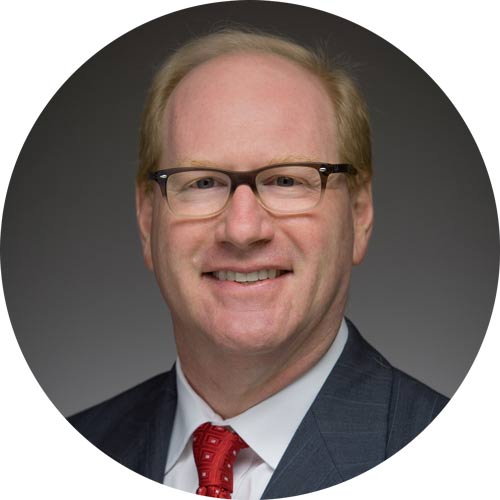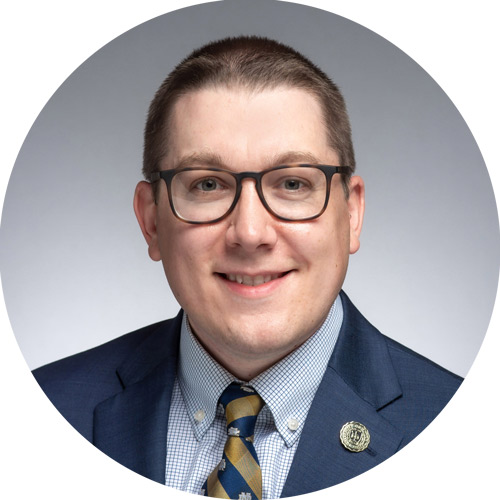This fall, the Mendoza College of Business released a new strategic plan for the Notre Dame MBA program. The plan is designed to strengthen the MBA program. It reflects months of work by a faculty and staff task force, supported by the University’s Institutional Research, Innovation, and Strategy (IRIS) team.
The task force began with a thorough analysis of the MBA landscape and of Notre Dame’s position within it. They found that while most MBA programs look similar, students tend to choose programs based on rankings, career placements, location and scholarships. Notre Dame benefits from its Catholic mission, our alumni network and strong brand, but lags in areas such as employer relations and fundraising when compared to top-ranked peers.
Employer and student feedback provided additional insight. Employers emphasized that internships are the single most important factor in securing full-time offers. Students praised faculty and the program’s collaborative culture, but voiced concerns about limited access to alumni networks and inconsistent communication.
The conclusion: The Notre Dame MBA has strong assets to build upon and clear opportunities for improvement.
The plan identifies four overarching goals:
- Career Outcomes: Better prepare students and connect them with premier employers.
- Curriculum: Deliver a rigorous and integrated curriculum that develops ethical, impactful leaders.
- Admissions: Attract and enroll high-potential students who embody Notre Dame’s values.
- Branding: Sharpen and communicate the distinctiveness of the Notre Dame MBA.
Several initiatives are already underway to advance these goals:
- Employer and Alumni Relations: Building a dedicated employer relations team charged with strengthening recruiting pipelines and investing in alumni relations, including piloting an “executive in residence” program for student mentorship.
- Career Preparation: Expanding the curriculum, case interview prep and peer mentoring to help students succeed in the competitive internship process.
- Curriculum Enhancements: Adding training in communication and executive presence, as well as multiple courses on artificial intelligence, alongside enhanced experiential opportunities such as consulting projects and global immersions.
- Purposeful Admissions: Using data-driven insights to recruit strong candidates, with targeted outreach to groups that have a natural affinity to our mission.
- Brand Differentiation: Refining messaging, expanding digital presence and highlighting the strengths of our community and mission.
As Dean Cremers noted in charging the task force, the objective is simple but profound: to foster excellence throughout the MBA program. The strategic plan gives us a clear path forward, grounded in research and animated by the values that define Notre Dame.
For faculty and staff, this is an invitation to be part of the journey. Whether by mentoring students, contributing to curriculum innovation or helping to tell the Notre Dame MBA story, our collective efforts will ensure that the program stands apart for its mission-driven approach to business education.
Together, we can help the Notre Dame MBA fully live up to its promise: transforming the lives of our students and, through them, making a lasting impact on the world.
Many colleagues devoted considerable time and energy to creating this strategic plan. We want to thank the members of the MBA Task Force: Seth Berry, Patty Brady, John Busenbark, Vamsi Kanuri, Rob Kelly, Jessica Watkins, Katie Wowak and Rafael Zambrana. We also want to thank the Notre Dame IRIS team of David Bailey, Lissa Bill, Theo Helm and Connor O’Rear.
In Notre Dame,
Nick and Gianna
Nick Berente
Sr. Association Dean for Academic Programs
Gianna Bern
Associate Dean for MBA Programs






